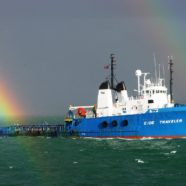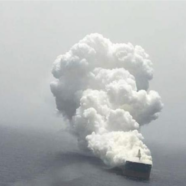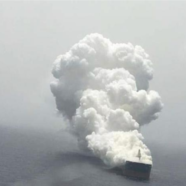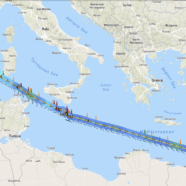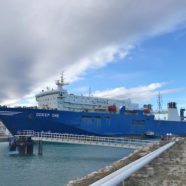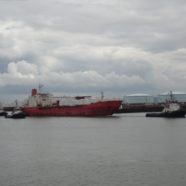On the Trail n°30 – the defaunation bulletin
On the Trail n°30 – July, August and September 2020
1040 events with references, along with analyses, iconographic documents, maps and historical archives
201 pages (pdf), 12 Mo
“On the Trail” is going on with its analysis of the effects of the Covid-19 crisis on poaching and animal smuggling through one thousand or so genuine examples from around the world. In the third quarter of 2020, rumours are taking hold about pangolin meat, feline meat and lion organs being considered miracle cures for Covid-19. The pandemic causes a surge in wildlife plundering. As soon as the pandemic emerged, it caused an upsurge in trapping. In India and Africa, people from the cities returned to the villages, there were many mouths to feed, and poaching increased. In rich countries, recreational hunting is in full swing; people kill deer, bears, moose and birds of prey to kill time. Wildlife trafficking is on the rise on social networks. In Myanmar, transit and force-feeding centres for pangolins waiting to be smuggled to Thailand are full because of the border closures and transport paralysis. Destocking of raw ivory and other wildlife products accumulated during the full disruption of supply chains are beginning to appear. The global market for wild birds is expanding. The Covid-19 crisis has opened up new opportunities with a confined humanity in need of nature.
On the Trail n°30 – the defaunation bulletin
On the Trail n°30 – July, August and September 2020
1040 events with references, along with analyses, iconographic documents, maps and historical archives
201 pages (pdf), 12 Mo
“On the Trail” is going on with its analysis of the effects of the Covid-19 crisis on poaching and animal smuggling through one thousand or so genuine examples from around the world. In the third quarter of 2020, rumours are taking hold about pangolin meat, feline meat and lion organs being considered miracle cures for Covid-19. The pandemic causes a surge in wildlife plundering. As soon as the pandemic emerged, it caused an upsurge in trapping. In India and Africa, people from the cities returned to the villages, there were many mouths to feed, and poaching increased. In rich countries, recreational hunting is in full swing; people kill deer, bears, moose and birds of prey to kill time. Wildlife trafficking is on the rise on social networks. In Myanmar, transit and force-feeding centres for pangolins waiting to be smuggled to Thailand are full because of the border closures and transport paralysis. Destocking of raw ivory and other wildlife products accumulated during the full disruption of supply chains are beginning to appear. The global market for wild birds is expanding. The Covid-19 crisis has opened up new opportunities with a confined humanity in need of nature.
Shipbreaking n°63 – the summer boat-movie
76 pages, 226 photos, 79 sources (pdf, 12,4 Mo)
Brest and Genoa are setting about it! It is in Brest that the tanker Varzuga will be scrapped. Coming from Murmansk, she was initially to be scrapped in Turkey.
The world economy is picking up. In the Indian subcontinent, demolition yards are buying the tonne of scrap metal at around 550 US$, with peaks of over 800 US$ for end-of-life ships containing stainless steel. The proceeds of the sale are increasingly channelled through the British Virgin Islands.
Sète (South France)-Colombo (Sri Lanka): the mad escape of the Odeep One
July 30, 2021. 12 h
The dilapidated vessel targeted by the Paris Memorandum of Understanding on Port State Control escaped from Sète on Friday, July 23, with the complicity of the port. The Odeep One caused in her flight 2 oil pollutions in the port basins and at the exit of the channel. The Ship Safety Centre (SSC) based in Sète was not informed of this departure. Yesterday, July 29, the Odeep One has refuelled in Maltese territorial waters and is now heading for Colombo (Sri Lanka). Close monitoring of the Odeep One‘s trajectory between Sète and Malta by Robin des Bois and other specialists has shown that she is facing mechanical problems. Her average speed is 5 to 6 knots with phases at one or 2 knots.
The Russian tanker will be scrapped in Brest
The Russian tanker Varzuga left Murmansk in tow of the Christos XXIV for a shipbreaking yard in Aliaga, Turkey, on April 17, 2021. She should finally arrive in Brest on the evening of Saturday, July 10, in tow of the VB Gascogne. The operation is being monitored by the Channel and North Sea Prefecture. It recommended the towing to be carried out during a favourable weather window with wave heights of less than one metre.







